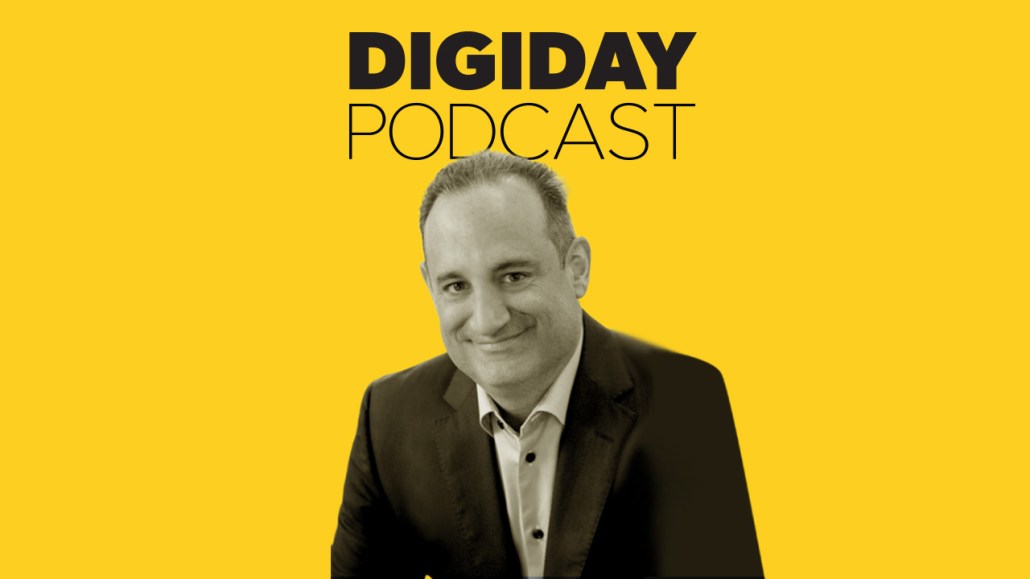Secure your place at the Digiday Publishing Summit in Vail, March 23-25

Subscribe: iTunes | Google Play | Stitcher | Anchor
Meredith, which acquired Time Inc in 2018, is home to a stable of female-focused media brands like People and Every Day with Rachel Ray. The company’s long relied on print revenue, but like everyone else, is now looking to diversify revenue streams, especially in digital.
“Half of our revenue comes from consumer forms of revenue and half comes from advertising,” said Jon Werther, president of the National Media Group at Meredith on the Digiday Podcast. “But we’re also looking to diversify within each area. In advertising, print is still bigger than digital advertising for us. Within digital, seven years ago, roughly 90% of our inventory was traditional display through direct sales. Then we got into non-IAB standard inventory, premium monetization with native and engagement based video to build more premium forms of monetization. Now we’re at 50-50.”
Werther discusses Meredith’s roadmap to revenue diversification, competing with platforms and more. Edited highlights appear below.
Scale helps compete with platforms.
“We have brands at scale that engage consumers daily. Our immersive cross-channel experiences drive $2 out of every $3 that are spent across every key purchasing category. Our content creation capabilities, storytelling and insights and analytics drive significant business outcomes for brands. We guarantee those results. Platforms may have greater reach and first-party data than we do. We think we can target users better than Facebook in certain cases. With DTC companies, their returns are diminishing and that’s where we can play. We can compete there with our consumers. We are increasingly among the small group of media companies that they’re choosing to work with on an annual basis. It works because they’re renewing [the contracts.]”
Diversification needs to happen within print and advertising revenue.
“At the highest level, we’re a multi-billion dollar national media group within Meredith. We’ve leaned into programmatic [advertising.] Insights and content continue to anchor our largest partnerships. On consumer revenue, we have a rich history. We’ve diversified into brand licensing, which is our most profitable revenue stream. From a performance-oriented platform perspective, we bought an affiliate marketing platform, called Shop Nation. It helps us drive more than half a billion dollars in retail sales and it’s growing very quickly. We bought a company in the lead generation space, that has helped us drive efficient and effective leads lower in cost-per-acquisition and proven lifetime value in categories like home services and insurance, where we traditionally haven’t had the significant growth that we have today. We also bought a coupon company that’s allowing us to leverage exclusive relationships with retailers to drive sales for our retail and brand partners.”
Paywalls have not worked for Meredith.
“We have tested paywalls on many fronts and are yet to find a paywall strategy that works better than a non-paywall strategy for our brands. Historically, we were more food, home, family and lifestyle, which is evergreen content. But now that we’re getting into entertainment and luxury assets, we’ll test and see if what’s been true historically continues to be true from that perspective.”
Apple News is an opportunity.
“There was never really any pushback [to Apple News] from our perspective. We have the opportunity at a very strategic level to expose our brands to newer audiences. There are different ways in which the relationship benefits publishers like Meredith. We can share the upside of increased engagement with our users. When the subscriptions count, we are able to reduce our subscriber acquisition costs. Then we can partner with Apple to monetize those assets from an advertising perspective, both in Apple News Plus but also on Apple News. We think of it as an additive and a growth potential opportunity.”
More in Media

Media Briefing: As AI search grows, a cottage industry of GEO vendors is booming
A wave of new GEO vendors promises improving visibility in AI-generated search, though some question how effective the services really are.

‘Not a big part of the work’: Meta’s LLM bet has yet to touch its core ads business
Meta knows LLMs could transform its ads business. Getting there is another matter.

How creator talent agencies are evolving into multi-platform operators
The legacy agency model is being re-built from the ground up to better serve the maturing creator economy – here’s what that looks like.








